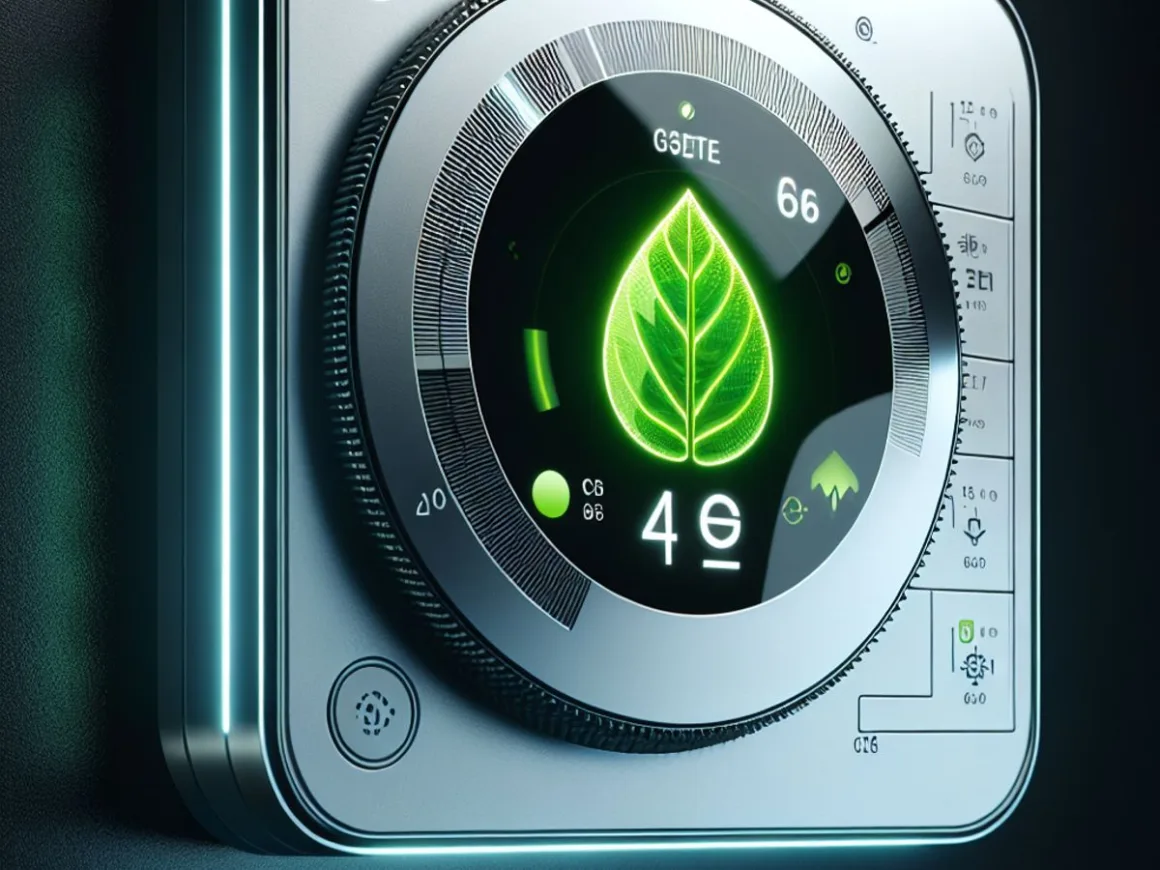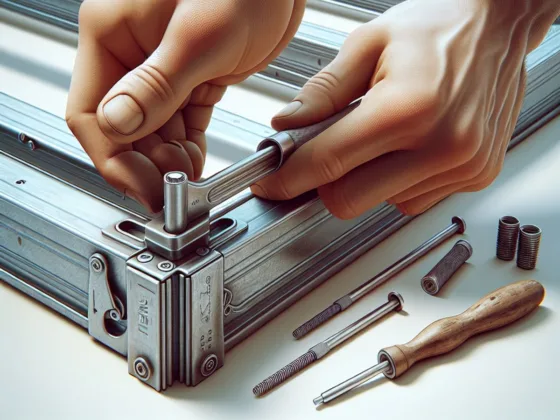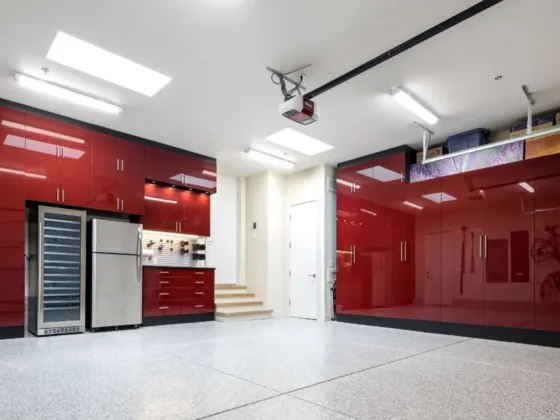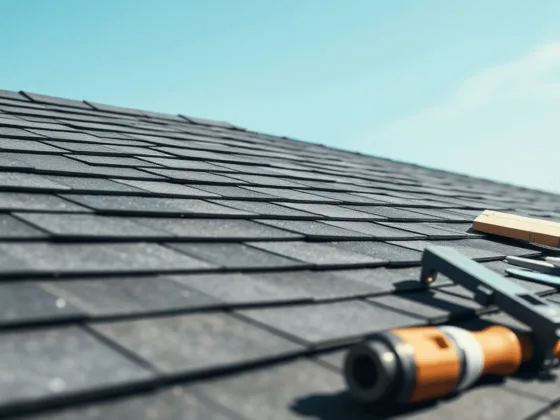Table of Contents Show
Upgrading to a high-efficiency HVAC (Heating, Ventilation, and Air Conditioning) system can provide numerous benefits, from improved energy efficiency and reduced environmental impact to enhanced indoor air comfort and lower energy costs.
This discussion explores these advantages, highlighting the transformative impact of modern, high-efficiency systems in residential and commercial settings.
Enhanced Energy Efficiency
One of the most significant benefits of high-efficiency HVAC systems is their ability to use less energy to achieve the same—or even better—levels of heating and cooling compared to older models. These systems are designed with advanced technologies such as:
- Variable Speed Motors: Unlike traditional single-speed motors, variable-speed motors can adjust their speed based on the heating or cooling needs at any given time. This flexibility allows the system to run at lower speeds when full capacity isn’t needed, reducing energy consumption significantly.
- Smart Thermostats: Smart thermostats offer precise control over your HVAC system. They can learn your schedule, adjust settings automatically, and even be controlled remotely via smartphone apps. This level of control ensures that your system operates only when necessary, further enhancing efficiency.
- Improved Heat Exchange Materials: Modern HVAC systems use advanced materials in their heat exchangers to maximize thermal conductivity while minimizing energy loss. These materials ensure more effective heat transfer, which means your system doesn’t have to work as hard—and consume as much energy—to maintain desired temperatures.
The result of these innovations is a substantial reduction in energy consumption. This decrease in energy usage is beneficial for both the environment and the utility bills of homeowners and businesses. By consuming less power, high-efficiency HVAC systems help reduce greenhouse gas emissions, contributing to a more sustainable future.
Additionally, users can expect:
- Lower Operational Costs: The efficiency gains translate directly into reduced operational costs over time. Lower energy bills mean more savings for you.
- Extended System Lifespan: High-efficiency systems often experience less wear and tear due to optimized operation, potentially extending the life of your HVAC unit and reducing maintenance costs.
Investing in a high-efficiency HVAC system not only enhances comfort but also serves as a proactive step towards environmental responsibility and financial savings.
Cost Savings Over Time
The initial investment in a high-efficiency HVAC system can be higher than that of a standard system. However, the long-term savings on energy bills can be significant. High-efficiency systems operate more efficiently, using a fraction of the energy that older, less efficient models consume. This reduction in energy usage translates directly into lower monthly bills, making it a cost-effective choice over the system’s lifespan.

Key Financial Benefits
- Reduced Energy Bills: High-efficiency systems are designed to use less power while maintaining optimal performance. This means you will see a noticeable reduction in your monthly utility bills.
- Rebates and Incentives: Many utility companies offer rebates and incentives for upgrading to energy-efficient HVAC systems, reducing the net cost to consumers. Check with your local utility provider for available programs.
Additional Savings
- Lower Maintenance Costs: These advanced systems often require less maintenance due to their optimized operation, which means fewer service calls and lower maintenance expenses over time.
- Extended System Life: By operating more efficiently and experiencing less wear and tear, high-efficiency HVAC units tend to have a longer lifespan. This reduces the frequency of costly replacements.
Investing in a high-efficiency HVAC system is not only about immediate comfort but also about making a financially sound decision that pays off in the long run.
Improved Indoor Air Quality
High-efficiency HVAC systems are better equipped to manage and improve indoor air quality. They are often integrated with sophisticated filtration systems that can more effectively remove pollutants, allergens, and pathogens from the air. If you are interested in assessing the current quality of your indoor air, there is a convenient option to test your indoor air quality, which can help identify potential areas for improvement.
Key Features of High-Efficiency HVAC Systems:
- Advanced Filtration: These systems typically include high-efficiency particulate air (HEPA) filters, which can capture up to 99.97% of airborne particles as small as 0.3 microns.
- UV Light Technology: Some models incorporate ultraviolet light to eliminate bacteria and viruses, further enhancing the cleanliness of your indoor environment.
- Humidity Control: High-efficiency HVAC units often come with built-in humidifiers or dehumidifiers to maintain optimal indoor humidity levels, preventing mold growth and reducing dust mites.
Health Benefits
These advanced systems can contribute to a healthier living and working environment by ensuring cleaner air circulation, particularly if you or your family members have:
- Allergies: Reduced exposure to common allergens like pollen, pet dander, and dust mites.
- Respiratory Issues: Lower levels of airborne irritants can alleviate symptoms associated with asthma and other respiratory conditions.
- General Health: Cleaner air can lead to fewer illnesses and improved overall well-being.
By investing in a high-efficiency HVAC system, you not only enhance comfort but also promote a healthier indoor atmosphere for everyone in your home or office.
Greater Environmental Protection
Upgrading to a high-efficiency HVAC system represents a proactive approach to environmental conservation. These systems are engineered to minimize their environmental impact by significantly reducing the greenhouse gases emitted during operation. This is achieved through enhanced energy efficiency, lessening reliance on fossil fuels, and decreasing the overall carbon footprint of heating and cooling activities.
Key Environmental Benefits
- Enhanced Energy Efficiency: High-efficiency HVAC systems utilize advanced technologies such as variable-speed compressors and smart thermostats. These features ensure that energy is used more effectively, reducing waste and lowering your overall energy consumption.
- Reduced Greenhouse Gas Emissions: By optimizing energy use, these systems emit fewer greenhouse gases compared to traditional models. This reduction plays a crucial role in mitigating climate change.
- Lower Reliance on Fossil Fuels: The improved performance of high-efficiency systems means less energy is required from non-renewable sources. Consequently, this decreases the demand for fossil fuels, which are a major contributor to environmental pollution.
Furthermore, modern high-efficiency HVAC units are designed to utilize refrigerants with a lower potential for ozone depletion than their predecessors.
Sustainable Refrigerant Use
- Eco-Friendly Refrigerants: Newer models often employ refrigerants like R-410A or R-32, which have a much lower Global Warming Potential (GWP) compared to older refrigerants such as R-22. Using these eco-friendly alternatives helps protect the ozone layer.
- Compliance with Regulations: These refrigerants meet stringent environmental regulations and standards set by governing bodies worldwide, ensuring that your HVAC system is both efficient and environmentally responsible.
Opting for such technology allows you to contribute actively to the global initiative against climate change, promoting a sustainable future and a healthier planet for generations to come.
Incorporating a high-efficiency HVAC system not only benefits your immediate environment but also supports broader environmental goals. By making this choice, you are playing an essential role in fostering ecological balance and sustainability.
Enhanced System Performance and Comfort
The technology that powers high-efficiency HVAC systems allows them to provide more consistent and comfortable indoor temperatures. Features like variable-speed compressors and fans adjust the speed gradually and continuously to match the specific heating or cooling needs at any given time, avoiding the typical on-and-off cycles of traditional systems. This ensures a more stable indoor climate and reduces the wear and tear on the system components, enhancing durability and reducing maintenance needs.
Key Features for Improved Comfort
Variable-Speed Compressors:
Variable-speed compressors operate at different speeds to precisely control temperature levels. Instead of running at full capacity all the time, these compressors adjust their output to meet real-time demands, ensuring optimal performance without unnecessary energy consumption.
Advanced Fan Blades:
Modern HVAC systems utilize advanced fan blade designs that maximize airflow while minimizing noise. These blades are engineered to move air more efficiently throughout your space, contributing to a more balanced and comfortable indoor environment.
Smart Thermostats:
High-efficiency HVAC systems often come equipped with smart thermostats that learn your preferences over time. These thermostats can automatically adjust settings based on your daily routines, providing enhanced comfort while also conserving energy.
Benefits for System Longevity
1. Reduced Wear and Tear:
- The gradual adjustments made by variable-speed technology mean less strain on components. This reduces the likelihood of breakdowns and extends the lifespan of your system.
2. Lower Maintenance Needs:
- Because high-efficiency systems operate more smoothly and consistently, they experience fewer issues that require maintenance. This can lead to significant savings in repair costs over time.
Additional Comfort Enhancements
1. Humidity Control:
- Advanced HVAC systems often include humidity control features. By maintaining optimal humidity levels, these systems prevent issues like mold growth and enhance overall comfort.
2. Air Quality Improvements:
- Many high-efficiency models come with superior air filtration systems that remove pollutants, allergens, and other airborne particles. This results in cleaner, healthier air inside your home or workplace.
By incorporating these advanced technologies, high-efficiency HVAC systems not only ensure you enjoy a more consistent temperature but also contribute significantly to overall comfort and long-term reliability.
Quieter Operation
High-efficiency HVAC systems are specifically designed to operate at lower noise levels, significantly enhancing comfort within residential and commercial settings. These systems incorporate state-of-the-art technologies, such as insulated compressor units and advanced fan blades, which are engineered to reduce operational sounds.
- Insulated Compressor Units: By using insulation materials around the compressor, these systems minimize the noise generated during operation.
- Advanced Fan Blades: Designed for optimal aerodynamics, these fan blades produce less turbulence and hence less noise.
Additionally, the components are often housed in acoustically treated enclosures that absorb sound before it can permeate into living or working spaces. This quiet operation is essential in environments like:
- Hospitals: Excessive noise can disrupt patient recovery and affect overall well-being.
- Schools: A quieter environment helps maintain focus and concentration among students and staff.
Residents in urban and suburban areas also benefit from these systems, as they can help maintain a peaceful home environment free from the intrusive noise associated with older HVAC models. Whether you’re relaxing at home or focusing on work, the reduced noise levels contribute to a more serene atmosphere.
Increased Property Value
The installation of a high-efficiency HVAC system can significantly enhance the market value of a property. Modern homebuyers and commercial investors increasingly seek properties equipped with energy-efficient technologies, recognizing the long-term cost savings and environmental benefits these systems offer.
Key Selling Points
A high-efficiency HVAC system is a key selling point for several reasons:
- Long-Term Cost Savings: Potential buyers are attracted to the reduced utility bills associated with energy-efficient systems.
- Environmental Benefits: These systems reduce carbon footprints, appealing to eco-conscious buyers.
- Modernization Indicator: A new HVAC system suggests that the property is well-maintained and up-to-date.
Market Appeal
This perception can lead to a quicker sale and a higher resale value. Consider the following aspects:
- Quicker Sales Process: Properties with modern HVAC systems tend to spend less time on the market.
- Higher Resale Value: Energy-efficient upgrades often justify a higher asking price.
Meeting Environmental Standards
Lastly, properties with such upgraded systems often meet more stringent environmental standards, appealing to a growing demographic of eco-conscious buyers who value sustainability in their living and working spaces.
Interesting Fact: According to the National Association of Realtors (NAR), homes with energy-efficient features can sell for up to 6% more than similar homes without these upgrades.
By incorporating high-efficiency HVAC systems, you not only enhance comfort and reduce operational costs but also make your property more attractive in today’s competitive real estate market.

Conclusion
The benefits of upgrading to a high-efficiency HVAC system are clear and multifaceted. From substantial energy and cost savings to improved indoor air quality and environmental protection, these modern systems represent a smart investment in comfort, health, and sustainability.
As energy costs continue to rise and environmental concerns grow more pressing, the advantages of adopting efficient HVAC technology become even more compelling. These make it prudent to enhance the living or working environments while contributing positively to global environmental goals.
Investing in a new HVAC system is not just a step towards immediate benefits but also a long-term commitment to responsible energy usage and environmental stewardship. By embracing these advancements, property owners can enjoy the peace of mind that comes with reduced operational costs, healthier living spaces, and a smaller carbon footprint. In essence, modern HVAC systems are a testament to forward-thinking and sustainable living, aligning personal comfort with global ecological responsibility.
FAQs (Frequently Asked Questions)
The key financial benefits include cost savings over time due to reduced energy bills, lower maintenance costs, and the initial investment in a high-efficiency HVAC system.
High-efficiency HVAC systems are better equipped to manage and improve indoor air quality through advanced filtration, contributing to a healthier living environment.
High-efficiency HVAC systems offer variable-speed compressors, advanced fan blades, smart thermostats, humidity control, air quality improvements, and quieter operation for increased comfort.
The benefits for system longevity include reduced wear and tear, lower maintenance needs, additional comfort enhancements such as humidity control and air quality improvements, and quieter operation.
The installation of a high-efficiency HVAC system can significantly increase property value as it is a key selling point for several reasons, leading to market appeal and meeting environmental standards.
Upgrading to a high-efficiency HVAC system represents a proactive approach towards greater environmental protection by utilizing enhanced energy efficiency, sustainable refrigerant use, and contributing to meeting environmental standards.










